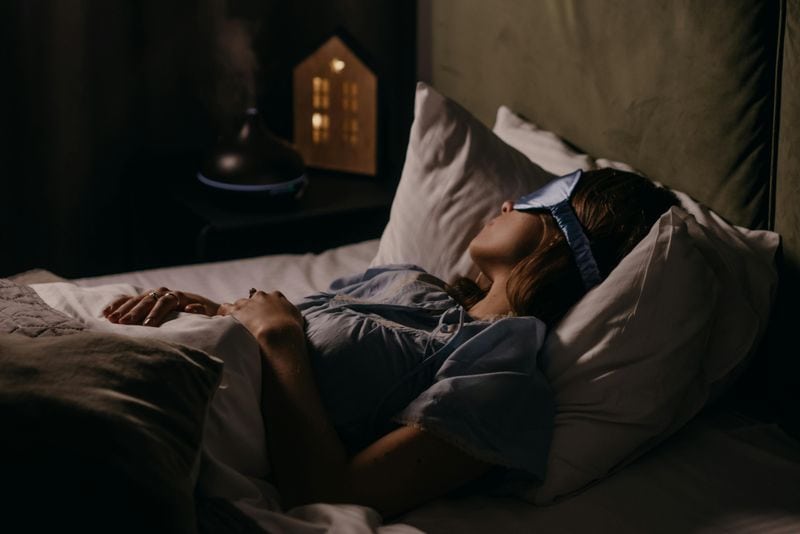Do you find yourself wide awake when everyone else is sound asleep? Being a night owl isn’t just about staying up late—it’s actually connected to some pretty interesting personality traits and abilities.
Research shows that people who prefer burning the midnight oil often share certain characteristics that set them apart from early birds.
Whether you’re scrolling through your phone at 2 AM or working on creative projects while the world sleeps, you might recognize yourself in these fascinating traits.
Your Creative Energy Peaks After Dark

Something magical happens when the sun goes down and your brain suddenly comes alive with ideas. Many night owls discover their most creative thoughts flow freely during those quiet evening hours when distractions fade away.
The silence and solitude create perfect conditions for innovative thinking. Your mind wanders into unexplored territories, connecting dots in ways that daylight hours never allow.
Writers, artists, and musicians often find their best work emerges between midnight and dawn. That’s when imagination runs wild and original ideas seem to appear from nowhere, making late nights feel like your personal creative playground.
Problem-Solving Becomes Your Superpower

Complex puzzles and challenging questions don’t intimidate you—especially when tackled during nighttime hours. Your brain seems to shift into a different gear once darkness falls, allowing you to see solutions others might miss.
Late-night sessions give you uninterrupted time to focus deeply on difficult tasks. Without constant interruptions from texts, emails, or chatty coworkers, your concentration reaches impressive levels.
Whether it’s homework, work projects, or personal challenges, you excel at breaking down complicated problems into manageable pieces. Friends and family probably know you’re the person to text when they need help figuring something out after hours.
Spontaneous Decisions Come Naturally

Planning every detail isn’t really your style. Night owls often embrace spontaneity, making quick decisions without overthinking every possible outcome or consequence.
This impulsive streak can lead to exciting adventures and memorable experiences. Midnight snack runs, last-minute movie marathons, or ordering random items online at 3 AM become part of your lifestyle.
While this trait keeps life interesting, it can sometimes lead to choices you regret later. That online shopping spree or agreeing to plans without checking your schedule first might seem less brilliant in morning light, but it certainly keeps things unpredictable and fun.
Social Connections Run Deep Despite Late Hours

Just because you love staying up late doesn’t mean you’re antisocial. Actually, many night owls maintain rich social lives and become the glue holding friend groups together.
You’re probably the friend everyone texts for late-night conversations or emergency support. Your availability during hours when most people sleep makes you incredibly valuable to your social circle.
Late-night video calls, gaming sessions with friends across time zones, or being the designated listener for friends going through tough times—these become your specialties. Your social network thrives because you’re present when others need someone most, even if that’s at unusual hours.
Alone Time Recharges Your Batteries

Crowds and constant chatter drain your energy faster than a phone battery. Evening hours offer precious solitude that helps you process thoughts and emotions without external pressure.
You genuinely enjoy your own company during nighttime hours. Reading, thinking, or simply existing without having to interact with others feels refreshing rather than lonely.
This introverted tendency doesn’t mean you dislike people—you just need quiet time to function properly. The peaceful atmosphere of late nights provides exactly what you need to feel balanced, centered, and ready to face whatever tomorrow brings to your doorstep.
Tasks Mysteriously Get Delayed Until Tomorrow

Deadlines approach while you convince yourself there’s still plenty of time. Procrastination becomes an art form when you’re naturally inclined toward late-night productivity instead of daytime efficiency.
Morning tasks somehow always get pushed to afternoon, then evening, then maybe tomorrow. You work best under pressure, which means waiting until the last possible moment often becomes your default setting.
This habit frustrates teachers, bosses, and probably yourself sometimes. Yet somehow you manage to pull things together eventually, even if it requires an all-nighter fueled by snacks and determination to finally complete what should have been finished days ago.
Dreams Feel Like Movie Adventures

When you finally fall asleep, your dreams explode with colors, stories, and bizarre scenarios that feel incredibly real. Night owls often experience more intense and memorable dreams than early risers.
These vivid nighttime adventures can be amazing or terrifying. One night you’re flying through magical landscapes, the next you’re running from something mysterious through endless hallways.
You probably remember your dreams in remarkable detail long after waking. Friends get entertained by your wild dream stories during lunch conversations. Sometimes nightmares interrupt your sleep, leaving you wide awake and slightly shaken, wondering what your subconscious is trying to tell you about your waking life.
Daytime Mind-Wandering Becomes Normal

Morning meetings or early classes find your mind drifting to completely unrelated topics. While others seem alert and focused, you’re mentally planning tonight’s activities or replaying last night’s conversations.
Your brain simply doesn’t hit peak performance during traditional daytime hours. Concentrating on boring tasks feels nearly impossible when your body clock insists it’s rest time, not work time.
Teachers and coworkers might mistake this for laziness, but it’s really just biology working against conventional schedules. You’re not deliberately ignoring important information—your mind just prefers exploring its own interesting thoughts during hours when your energy naturally runs low and focus feels impossible.
Intelligence Shows in Unconventional Ways

Research links higher IQ levels with preferences for staying up late. Your ability to adapt to non-traditional schedules and engage in complex thinking during unusual hours demonstrates cognitive flexibility.
You probably excel at subjects requiring deep analysis and abstract reasoning. Questions that stump others during daylight hours become clearer when you tackle them during your natural peak performance window.
This intellectual advantage doesn’t always translate to good grades if your schedule conflicts with morning classes. However, your capacity for sophisticated thought, pattern recognition, and learning complex concepts shines brightest when the rest of the world sleeps and your brain finally wakes up completely.
Medications Might Affect You Differently

Your unique sleep schedule affects more than just when you feel tired. Scientists discovered that circadian rhythms influence how bodies process medications, potentially changing their effectiveness and side effects.
Taking medicine at times that don’t align with your natural body clock might produce unexpected results. What works perfectly for early birds could hit you differently because your internal systems operate on alternative schedules.
This doesn’t mean medications won’t work—just that timing matters more than you might realize. Discussing your night owl tendencies with doctors helps them recommend appropriate dosing schedules that match your biology, ensuring treatments work effectively without causing unnecessary problems or complications.

